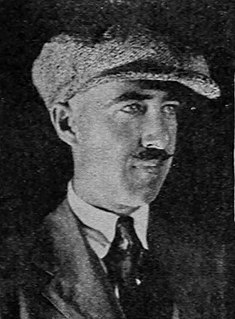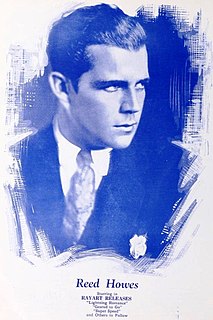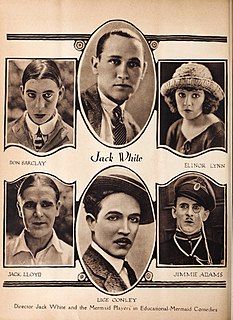
Bray Productions was a pioneering American animation studio that produced several popular cartoons during the years of World War I and the early interwar era, becoming a springboard for several key animators of the 20th century, including the Fleischer brothers, Walter Lantz, Paul Terry, Shamus Culhane and Grim Natwick among others.

William Washington Beaudine was an American film actor and director. He was one of Hollywood's most prolific directors, turning out films in remarkable numbers and in a wide variety of genres.

Educational Pictures, also known as Educational Film Exchanges, Inc. or Educational Films Corporation of America, was an American film production and film distribution company founded in 1916 by Earle Hammons (1882–1962). Educational primarily distributed short subjects; it is best known for its series of comedies starring Buster Keaton (1934-37) and the earliest screen appearances of Shirley Temple (1932-34). The company ceased production in 1938, and finally closed in 1940 when its film library was sold at auction.

Jacqueline Medura Logan was an American actress and silent film star. Logan was a WAMPAS Baby Star of 1922.

Kathryn McGuire was an American dancer and actress.

Dorothy Devore was an American silent film actress and comedian.

James B. Adams was an American silent-screen comedian and actor.

Madeline Hurlock was a silent film actress.
Phonofilm is an optical sound-on-film system developed by inventors Lee de Forest and Theodore Case in the early 1920s.

Lloyd Vernon Hamilton was an American film comedian, best remembered for his work in the silent era.
Charles Lamont was a prolific filmmaker, directing over 200 titles and producing and writing many others. He directed several Abbott and Costello comedies and many Ma and Pa Kettle films.

Billy West was a film actor, producer, and director. Active during the silent film era, he is best known as a semi-successful Charlie Chaplin impersonator. Beyond acting, he also directed shorts in the 1910s and 20s, as well as produced films. West ultimately retired in 1935.

Tiffany Pictures, which also became Tiffany-Stahl Productions for a time, was a Hollywood motion picture studio in operation from 1921 until 1932. It is considered a Poverty Row studio, whose films had lower budgets, lesser-known stars, and overall lower production values than major studios.

Hermon Reed Howes was an American model who later became an actor in silent and sound films.

Frederick Harmon Weight (1887–1978) was an American film director most prolific in the late silent film era of the 1920s. He directed many well-known performers such as George Arliss, Betty Compson, Myrna Loy and Rin-Tin-Tin.

Max Asher, born Max Ascher, was an actor whose career spanned the early silent film era to talkies in the early 1930s. His career began on stage. He appeared in various comedic shorts. He was 5'9" and more than 200 pounds. In the 1920s he transitioned to character actor roles.
Sunshine Comedies is a silent film era line of comedic short films. The two-reel film series was produced by Fox Film beginning in 1916. Actors featured in the series include Slim Summerville, Billie Ritchie, Ethel Teare, and Eli Nadel. Many of the comedies are lost but some survive. They were produced from 1917 until 1925.

Mermaid Comedies are comedy short films that were produced in the United States. They were distributed by Earle W. Hammons' Educational Pictures and were at the high end of its comedy series brands.
Cameo Comedies is a brand of short comedy films made in the United States. The films are one-reel shorts from Jack White's Educational Pictures and Colonial Motion Picture Corporation. Three of the productions utilized 3D stereoscopic effects in the titles. The films were produced for $5,000 each. They were made from 1922 to 1932, spanning the silent film and talkie eras.















